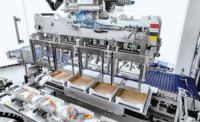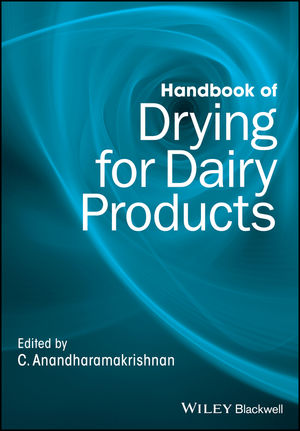Is AI a solution for dairy labor concerns?
The technology may also steamline operations, enhance food safety and improve traceability.

Photo courtesy of Shutter2U / iStock / Getty Images Plus.
Artificial intelligence (AI) is drastically changing the way the world operates. From production and preparation to ordering and delivery, AI systems are revolutionizing the food and beverage industry. For the dairy industry, artificial intelligence systems can benefit producers and consumers alike, offering streamlined operations, enhanced food safety and improved traceability.
As consumers demand more traceable food and beverage products, AI can help producers elevate traceability efforts as well as enhance food safety. To gain fresh insights on AI in dairy production, we consulted with sensor manufacturer Baumer and PMMI, The Association for Packaging and Processing Technologies.
Mark Allard, vision field sales specialist for Bristol, Conn.-based Baumer, notes that AI is expanding the potential for vision inspection. Though training AI models can be time-intensive, there are clear benefits to using AI.
“Looking specifically at the dairy industry, consider applications such as track and trace, foreign object detection, product discoloration, mold detection, or the general appearance of a product or its packaging,” Allard explains. “Track and trace typically involves reading and/or verifying printed text such as lot codes and expiration dates.”

This is where AI can help revolutionize dairy plants since AI solutions can offer more accurate, reliable results than traditional vision inspection, he says. Additionally, with the rise of regulatory complications and recalls, accuracy in vision inspection is paramount. “In general AI is allowing vision inspection to take the place of manual inspection, which is a monotonous job prone to errors and variability from one worker to the next,” Allard says.
Jorge Izquierdo, vice president of market development for PMMI, Herndon, Va., concurs that AI not only benefits production, but workers, too, allowing them to be more productive and efficient. He notes that AI copilots, virtual assistants that utilize AI to complete tasks, have great potential to improve worker productivity. “Time-consuming tasks, such as data entry and coding, can now be completed with the help of these copilots,” Izquierdo states.
AI and labor
As labor complications carry on, AI systems can help to close skills gaps and alleviate labor struggles. As machine operators and maintenance personnel are particularly hard to come by, AI systems ensure proper equipment training.
“AI copilots and generative AI predictive maintenance solutions allow users to ask questions, regarding issues they are having on machines, further enabling members of staff to upskill independently and reduce the risk of human error,” Izquierdo says.
To streamline operations and avoid regulatory errors, dairy packaging can also implement AI inspection systems. AI can ensure safety for not only the product itself, but for all components of packaging, including labels, materials and seals. Allard noted that traditional vision inspection may not be able to accommodate poorly printed or wrinkled labels, but AI could accommodate these common issues.
When implementing AI at a dairy plant, Allard urges producers to consider past and future system integration. He also recommends having a trained expert at the plant who is available to respond to AI complications. “Incorrectly labeled products pose a risk to consumers with food allergies, so leaving this to manual inspection is not ideal,” Allard says.
Kyle Lake, product market manager for Baumer, notes that other than ensuring product safety and label accuracy, AI can improve consistency for dairy products. Since the dairy industry faces such unpredictability in the production process, AI can work to enhance product quality assurance and consistency.
Though implementing AI systems can be quite costly, Lake is optimistic for the future of AI in dairy production. “As AI continues to evolve and the required computing power (or the cost of said power) decreases, the technology will be available to more and more processors, and fewer images may need to be trained at startup, simplifying and reducing the cost of deployment,” Lake states.
Izquierdo concludes that, while AI can benefit multiple aspects of dairy production, producers should not implement AI just for the sake of using AI. Implementing artificial intelligence should be a deliberate, thoughtful decision.
Looking for a reprint of this article?
From high-res PDFs to custom plaques, order your copy today!










